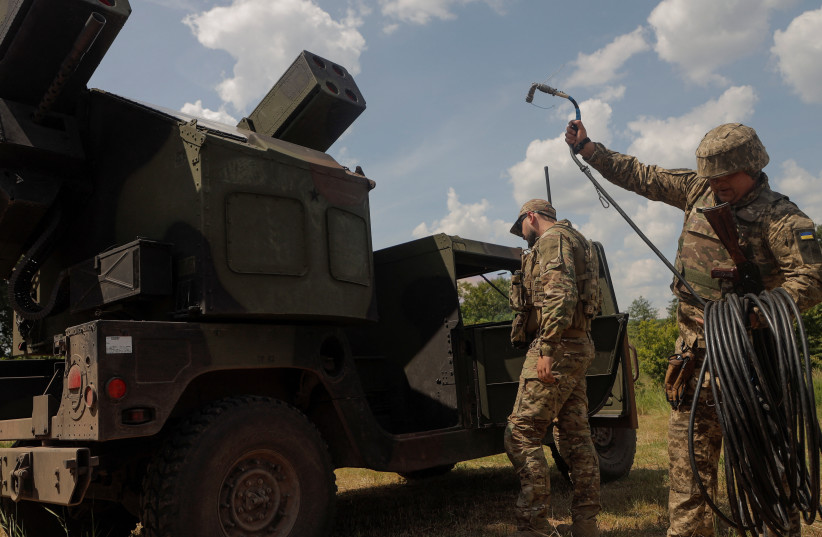Ukraine vows to use cluster bombs to ‘de-occupy only’
Ukraine’s Defense Minister Oleksii Reznikov welcomed the US decision to send cluster bombs to Kyiv, saying it would help to de-occupy the Ukrainian territory but vowed that the munitions would be not used in Russia.
The US announced on Friday that it would supply Ukraine with widely banned cluster munitions for its counteroffensive against occupying Russian forces.
Reznikov said the munitions would help save the lives of Ukrainian soldiers, adding that Ukraine would keep a strict record of their use and exchange information with its partners.
“Our position is simple – we need to liberate our temporarily occupied territories and save the lives of our people,” Reznikov wrote on Twitter. “Ukraine will use these munitions only for the de-occupation of our internationally recognized territories. These munitions will not be used on the officially recognized territory of Russia.”
Cluster munitions are prohibited by more than 100 countries. They typically release large numbers of smaller bomblets that can kill indiscriminately over a wide area. Those that fail to explode pose a danger for decades.
Jake Sullivan, President Joe Biden’s national security adviser, on Friday sought to make the case for providing the arms to Ukraine to reclaim territory seized since Russia invaded in February 2022.

“We recognize that cluster munitions create a risk of civilian harm from unexploded ordnance,” Sullivan told reporters. “But there is also a massive risk of civilian harm if Russian troops and tanks roll over Ukrainian positions and take more Ukrainian territory and subjugate more Ukrainian civilians because Ukraine does not have enough artillery,” he said.
Reznikov said the military would not use cluster munitions in urban areas and would use them only “to break through the enemy defense lines.”
Russia, Ukraine, and the United States have not signed the Convention on Cluster Munitions, which bans the production, stockpiling, use, and transfer of the weapons.
Spain and UK governments respond to cluster munitions
Cluster bombs should not be sent to help Ukraine, the Spanish defense minister said on Saturday, a day after the United States announced the weapons would be sent to Kyiv to help with its counter-offensive against Russian forces.
Cluster munitions are prohibited by more than 100 countries, including Spain. They typically release large numbers of smaller bomblets that can kill indiscriminately over a wide area. Those that fail to explode pose a danger for decades.
“Spain, based on the firm commitment it has with Ukraine, also has a firm commitment that certain weapons and bombs cannot be delivered under any circumstances,” Margarita Robles told reporters during a rally in Madrid ahead of the July 23 national election.
“No to cluster bombs and yes to the legitimate defense of Ukraine, which we understand should not be carried out with cluster bombs.”
 (credit: U.S. Air National Guard/Tech Sgt. Chance Johnson/Handout via REUTERS)
(credit: U.S. Air National Guard/Tech Sgt. Chance Johnson/Handout via REUTERS)Convention on Cluster Munitions
Robles said the decision to send cluster bombs was a decision taken by the US government, not by NATO, of which Spain is a member. There is broad support among Spanish parties for backing Ukraine and providing military aid for the war.
Russia, Ukraine and the United States have not signed on to the Convention on Cluster Munitions, which bans production, stockpiling, use and transfer of the weapons.
White House national security adviser Jake Sullivan said Ukraine had provided written assurances that it was going to use them “in a very careful way” to minimize the risk to civilians.
Asked why he was providing the cluster munitions now, President Joe Biden told reporters that it was because the effort to defend against Russia had “run out of ammunition.”
Britain is signatory to a convention which prohibits the production or use of cluster munitions and discourages their use, Prime Minister Rishi Sunak said on Saturday after the United States said it was planning to supply Ukraine with them.
“We will continue to do our part to support Ukraine against Russia’s illegal and unprovoked invasion,” Sunak told reporters.





Comments are closed.